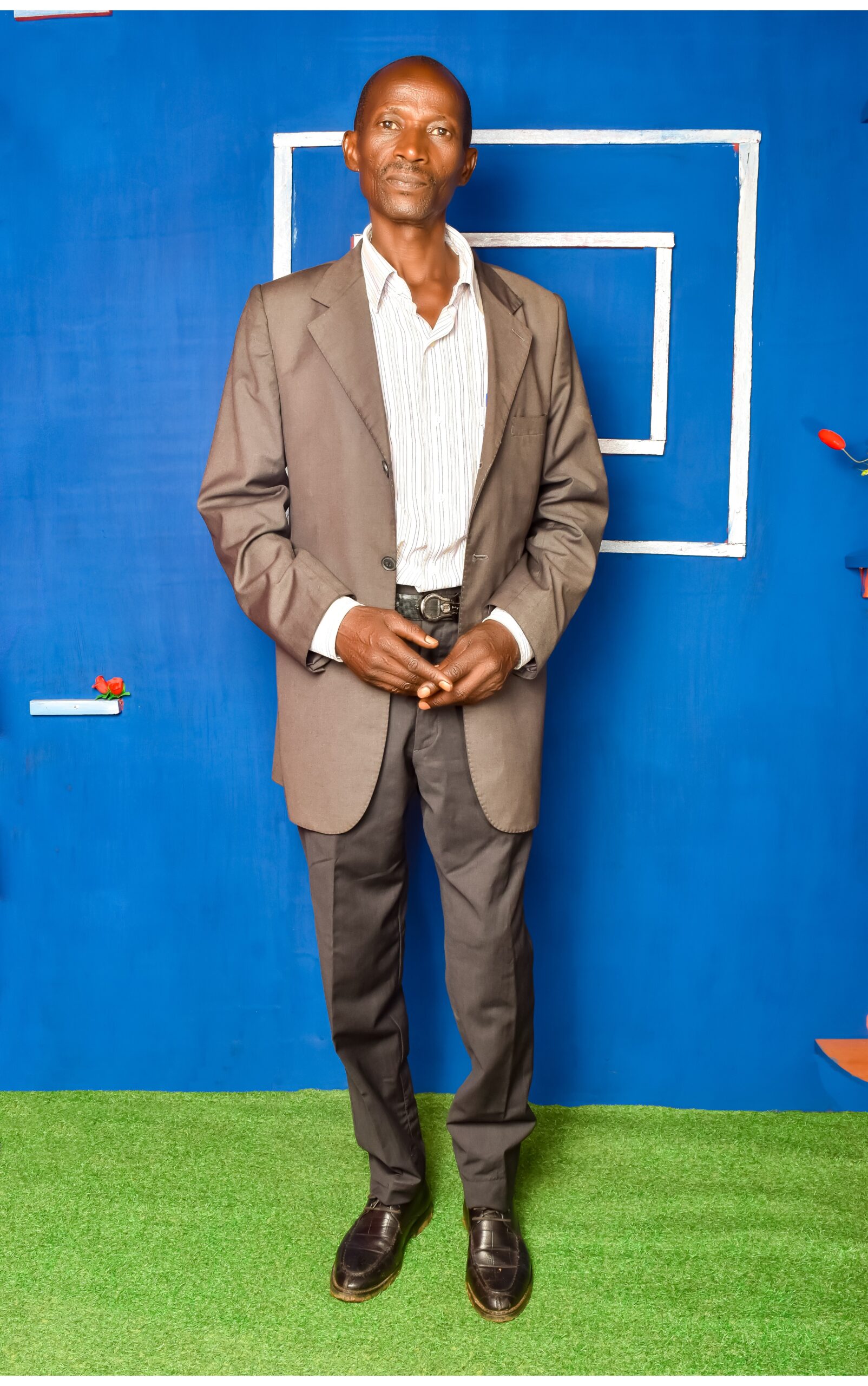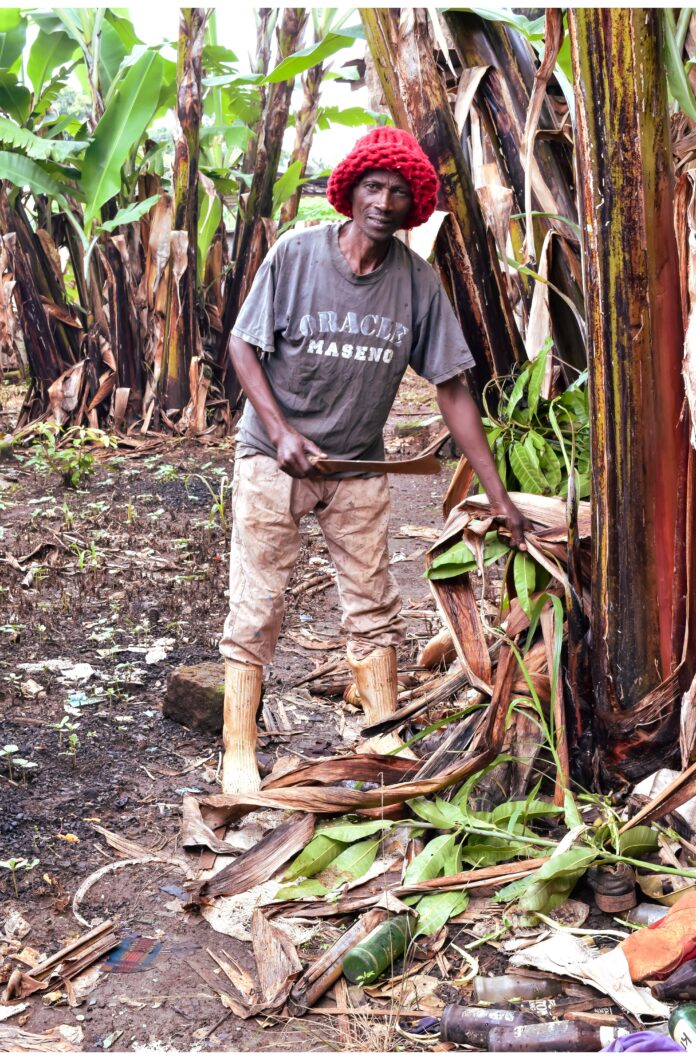By Ann Mikia
Nairobi, Kenya: According to the World Health Organization (WHO), Tuberculosis (TB) is the second leading global cause of death from infectious disease after COVID-19. It is curable even in people living with Human Immunodeficiency Virus (HIV).
Meet Joseph Raiji muthuri, a 60-year-old TB champion. Joseph also lives with HIV since 2004. Unlike today when people who test HIV positive are put on Anti-retroviral drugs (ARV’s) that stop the virus from multiplying in the body, the drugs were only available in a few private health facilities then and cost an arm and a leg.
In 2014, Joseph says he started experiencing frequent illnesses which he ignored and moved on with his life. “These included sweating at night, coughing, experiencing tiredness, a tired chest and difficulties in breathing, which didn’t bother me a lot”, he said to me through text.
Adding “I had no idea how TB creeps or rushes into someone as innocent as myself. I now wonder how many are aware of salient facts such as these” Joseph wondered.
He expressed fears that many people wait till they get bedridden only to be told its TB which has a cure. “When I presented myself to the hospital a chest x-ray reviewed I had TB. Treatment started and thinking of it now it shouldn’t have taken so long for me to seek treatment” he said.

When Joseph was given a clean bill of health after TB treatment for six months, he was working at the HIV Counselling and Testing Services (HTS) as a services provider in a youth friendly Centre. Good health worked for him for two years.
“I started losing weight and energy and really got tired especially in the lower body” Joseph said. He says that though a few of the symptoms mimicked the ones he had when he had the first bout of TB never made him suspect it could be TB.
“In 2017, I started I started having what my doctor called stool incontinences in other words I couldn’t control my bowels absolutely no speed governors” Joseph says this situation came and went at will. He says it really affected his self-esteem as he would be happy on some days and very ashamed on other days.
That incontinence condition made him visit about twelve hospitals seeking different opinions. In one private hospital, the doctor recommended colonoscopy, a scan to check if he had cancer. “It took a while to get a hospital with such a service and even the money to do the scan since I didn’t have it.”
The scan when finally done ruled out cancer. Surprisingly according to Joseph no medic suspected he could have had TB. He continued getting weak and weaker each day affecting not only his health but also his resources and finances. His performance at work too was not spared as he became less productive.
His illness greatly affected his social life because he avoided friends since he didn’t want them to know he was ever on diapers. in 2018, he continuously used diapers for four months. He used three to four diapers every day and each costed 95 shillings.
In 2018, he was diagnosed with Multidrug-resistant tuberculosis(MDR-TB). WHO defines it as a form of tuberculosis infection caused by bacteria that are resistant to treatment with at least two of the most powerful first-line anti-TB medications: isoniazid and rifampin.
The World Health Organization defines Extra Pulmonary Tuberculosis (EPTB) as an infectious disease caused by Mycobacterium tuberculosis that occurs in organ systems other than the lungs. It’s difficult to diagnose because its symptoms mimic those of other diseases. Constant symptom with those of pulmonary TB include fever, malaise and unexplained weight loss.
Joseph started the MDR-TB medication immediately. He says it was such a burden as he would take 15 tablets each day to treat TB and HIV. Today he only takes one Antiretroviral tablet which is a combination of Tenofovir, Lamivudine and Dolutegravir.
The MDR-TB medication however had some life changing effects on Joseph on the 77th day of treatment. He realized he couldn’t communicate hear what others were saying including the doctor. He had become deaf. I conducted my interview with him through writing.
Prof. Jeremiah Chakaya is a global respiratory health specialist says “Most likely Joseph received medicines we call amino glycosides (such as amikacin /kanamycin). These medicines have many adverse/side effects including causing kidney failure and deafness. Fortunately, they are no longer recommended for routine use in people with MDRTB.”
Great strides have been made in MDR-TB treatment in the country. The World Health Organization estimates that there were 1400 MDR-TB cases in Kenya in 2021.
Dr. Lorraine Mugambi-Nyaboga, an MDR-TB specialist says, “As a country we are moving towards oral drugs dropping the injectable in treating MDR-TB patients. This is because when the injectable are used for long they have side effects on patients.”














